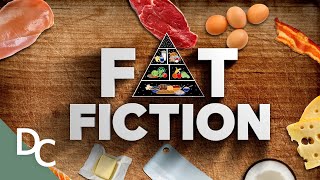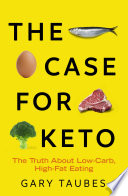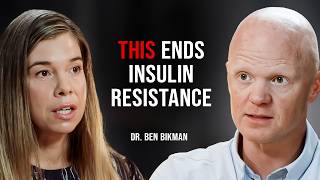A practical step-by-step guide for Type 1 diabetics transitioning to a very low-carb ketogenic diet safely.
Keto
Ketogenic Diet and Nutritional Ketosis
Keto (short for ketogenic) is a very low-carbohydrate diet—typically under 20-50g of carbs per day—that shifts your body's primary fuel source from glucose to fat. When carbohydrate intake is low enough, your liver produces ketones from fat, which your brain and body can use for energy. This metabolic state, called nutritional ketosis, is completely different from the dangerous condition called ketoacidosis. For people with diabetes, keto can dramatically simplify blood sugar management by reducing the need for insulin and eliminating the major cause of blood sugar spikes. Many with type 2 diabetes achieve remission on keto, while those with type 1 often reach near-normal blood sugar levels with far less insulin and greater stability.
Article (2)
The studies that blamed saturated fat? They actually showed vegetable oils increased death rates. Then the data disappeared for 40 years.
Video (2)

Fat Fiction
The Low Fat Diet Is Genocide
Conventional dietary guidelines promoting low-fat, high-carb eating are founded on flawed, cherry-picked science, leading to soaring rates of obesity and Type 2 diabetes, while decades of research confirm that saturated fat does not cause heart disease.
An interview with Dr. Ben Bikman, on how Insulin resistance silently shapes the trajectory of nearly every major chronic disease, yet it's often overlooked until blood sugar abnormalities become obvious.
Book (3)

The Case for Keto
The Truth About Low-Carb, High-Fat Eating
'The Case for Keto' challenges what we've been told about healthy eating and presents evidence for why a ketogenic lifestyle might be the key to reversing obesity and metabolic disease.

The Ketogenic Diet for Type 1 Diabetes
Reduce Your HbA1c and Avoid Diabetic Complications
Research (11)
A 5‑year very‑low‑carb, remote‑care program for type 2 diabetes showed durable benefits: 20% remission among completers, 33% reached HbA1c <6.5% with no meds or only metformin, alongside less medication and improved heart‑risk markers.
Reducing carbs can markedly improve blood sugar and cut insulin needs in diabetes; strong long‑term trials are the missing piece.
This paper argues that restricting carbs should be the first-line diet for diabetes because it quickly lowers blood sugar, improves key health markers, and often reduces medications—without proven long‑term harms comparable to drugs.
Tired of regaining weight after dieting? Research shows that a low-carb diet significantly boosts your daily calorie burn—up to 478 calories for those with high insulin secretion—making long-term weight maintenance dramatically easier.
Low‑carb, dietitian‑guided eating in type 1 diabetes improved HbA1c, time‑in‑range, and cut insulin—without more hypos or ketoacidosis. Short‑term, promising, needs larger trials.
Lower‑carb guidance in a UK GP practice led to 46% drug‑free type 2 diabetes remission and 93% normalization of prediabetes, with significant drops in HbA1c, weight, BP, and triglycerides.
Low-carb diets match or beat low-fat for Type 2 diabetes—often cutting meds and improving HbA1c—without evidence of increased cardiovascular risk.
Near-normal HbA1c and low acute complications reported by type 1 diabetics on a very low–carb diet. Findings are strong but need clinical trials to confirm.
A 1797 case report by John Rollo describes treating diabetes with a strict animal‑based, low‑carbohydrate diet and monitoring urine sugar, noting rapid symptom improvements.
Therapeutic carbohydrate reduction (low-carb to very low‑carb) in type 1 diabetes can lower blood sugars, reduce insulin needs, and improve A1C—often with fewer highs and lows—when done with proper medical oversight. This comprehensive guide (96 page) available in full text is an excellent paper to bring to your doctor.

